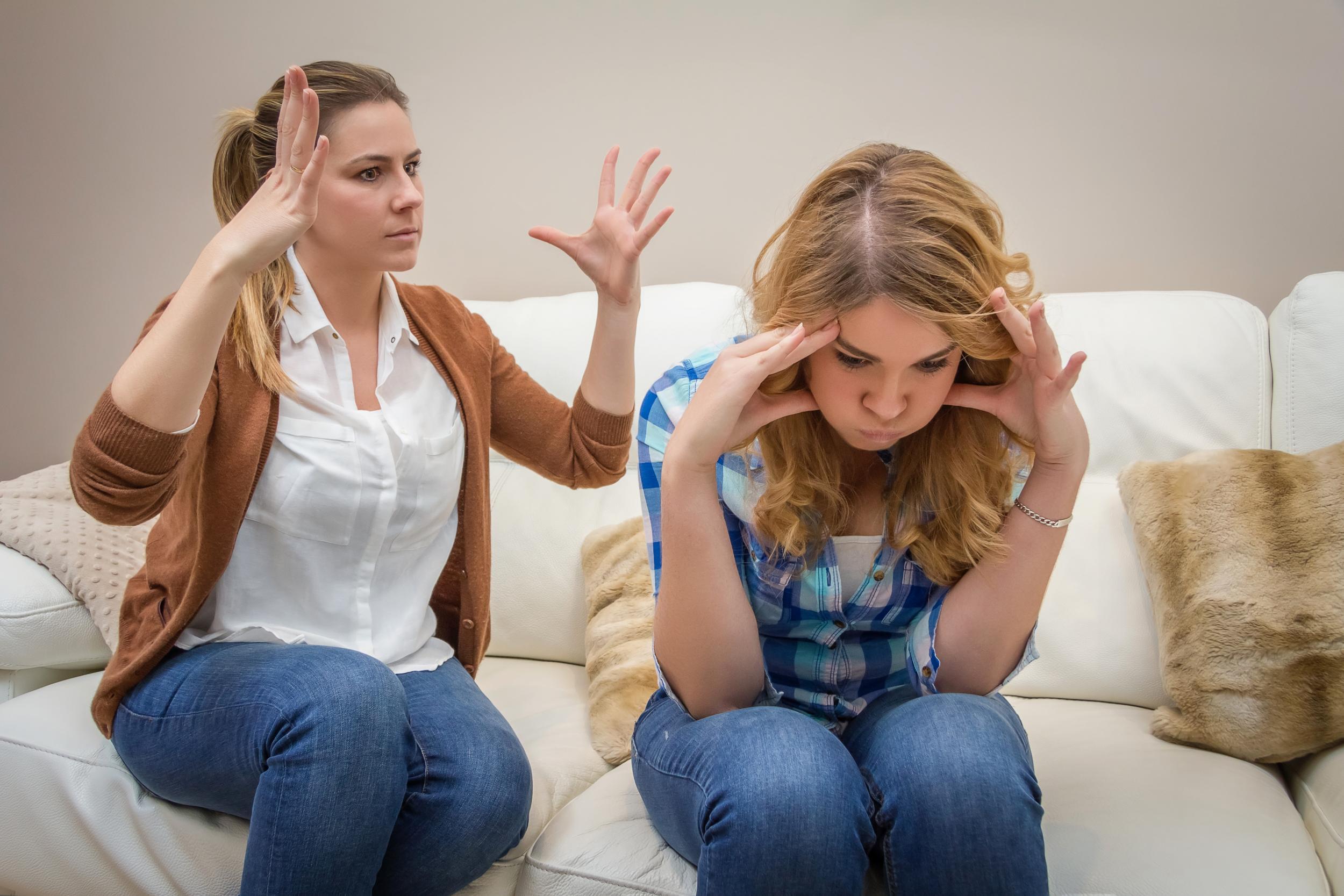Why parenting tweenage children is more stressful than the terrible twos
Mothers of babies may be more likely to be sleep-deprived, but researchers suggest the pressure only gets worse...

Your support helps us to tell the story
From reproductive rights to climate change to Big Tech, The Independent is on the ground when the story is developing. Whether it's investigating the financials of Elon Musk's pro-Trump PAC or producing our latest documentary, 'The A Word', which shines a light on the American women fighting for reproductive rights, we know how important it is to parse out the facts from the messaging.
At such a critical moment in US history, we need reporters on the ground. Your donation allows us to keep sending journalists to speak to both sides of the story.
The Independent is trusted by Americans across the entire political spectrum. And unlike many other quality news outlets, we choose not to lock Americans out of our reporting and analysis with paywalls. We believe quality journalism should be available to everyone, paid for by those who can afford it.
Your support makes all the difference.The exhausted, sleep-deprived mothers of babies and toddlers may appear to be grappling with the most stressful period of their child's lives, but experts believe it is in fact the 'perfect storm' of the tween years that cause the most grief.
US researchers recently studied over 2,200 mothers who were parenting children ranging from infants to adults. The team investigated factors including the mothers’ personal wellbeing, parenting style and perceptions of their children.
The study revealed an inverted-V shape in feelings of stress and depression rising and falling as children grew older. Mothers of ‘tweens’, or children aged 11 or 12, were under the most mental strain, while mothers of infants and adults children were faring the best.
“Their children are undergoing so many changes simultaneously — with onset of puberty, raging hormones, changes in their bodies, enormous investment in 'being popular' with peers, experimenting with testing limits (such as trying drugs, alcohol or sex) — all while trying to separate from parents and establishing their independence,” co-author and Professor of Psychology at the Arizona State University Suniya Luthar told The Independent.
“In their efforts to separate from parents — or 'individuate' — children can often seem withdrawn, closed off, moody, or defiant to parents.”
This can cause parents to struggle with the idea of their child growing up. “All these things come together in a '”perfect storm', often leaving parents confused and bewildered about how best to be a good parent across some pretty challenging situations,” added Professor Luthar.
What surprised researchers the most was how consistently mothers struggled during this time.
“Regardless of whether it was aspects of mothers personal depression or anxiety, their feelings about parenting, and even their marital relationships, it was clear that middle school was consistently the most difficult stage,” said professor Luthar.
Asked why mothers are uniquely affected, she suggested that stereotypical roles around parenting are yet to fall away across countries and cultures. “In most instances, mothers are the primary caregivers of children, which means that they are generally 'first responders' when their children are stressed or distressed," she said, adding: "Studies have shown that moms in general are more reactive to the cries of their babies, for example, than are dads.”
However, she added: “I would imagine that middle school would be among the most challenging stages for fathers as well.”
The team hopes to put their findings towards and scheme to help mothers cope with tweens.
“We are working on an intervention program to foster mutual supportiveness among mothers not just when they first transition to motherhood, but importantly, through these very challenging years around the transition to puberty," explained Professor Luthar.
The tough reality of parenting also ties in with separate research which investigated how many mothers regret having children.
The recent initial study involving 23 mothers by Orna Donath, a sociologist at Ben-Gurion University, Israel, sparked a fierce debate after it investigated the little-understand phenomenon of mothers who wish they did not have children, and tried to distinguish between ambivalence and firm regret.
Join our commenting forum
Join thought-provoking conversations, follow other Independent readers and see their replies
Comments